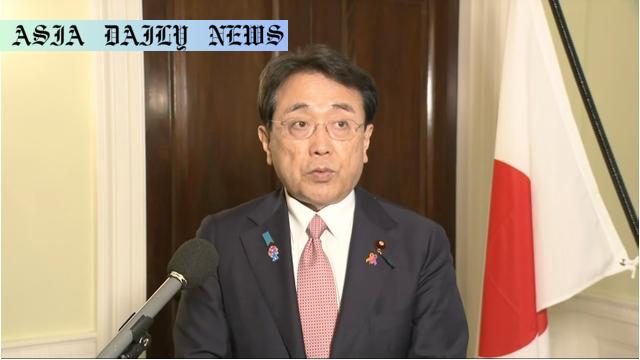Tariffs – Japan and US work toward resolving tariff disputes, confirm economic stances, and look to finalize agreements at G7 summit.
Japan’s Akazawa Ryosei met US officials to discuss tariff reviews and trade relations.
Both nations seek to finalize agreements on the sidelines of the upcoming G7 summit.
Talks included expanding trade and cooperation in economic security.

Overview of the Japan-US Tariff Negotiations
In a bid to strengthen economic ties and address ongoing trade concerns, Japan’s Economic Revitalization Minister and Chief Tariff Negotiator, Akazawa Ryosei, recently engaged in a pivotal round of discussions with key US officials, including Treasury Secretary Scott Bessent and Commerce Secretary Howard Lutnick. During the meeting in Washington on Friday, Akazawa strongly advocated for a review of US-imposed tariff measures, which he described as regrettable. These discussions underscore both nations’ commitment to ironing out tariff-related issues and exploring broader avenues for economic cooperation.
Progress Toward Fair Trade Agreements
The talks primarily focused on resolving tariff disputes, expanding trade opportunities, and enhancing non-tariff measures. Akazawa emphasized the necessity of reviewing current tariff systems that may be impeding bilateral trade growth. A significant outcome of the discussions was the mutual agreement to continue making diligent efforts toward reaching a mutually beneficial settlement on tariffs. Both sides aim to finalize these negotiations on the sidelines of the upcoming Group of Seven (G7) summit in Canada, signaling a deadline for concrete progress.
Economic Security and Strategic Cooperation
Aside from tariff-specific issues, both parties exchanged views on diversifying economic partnerships and bolstering economic security. This component of the dialogue highlights the growing need for nations to safeguard critical supply chains and collaborate on key sectors such as technology, finance, and energy. As two leading global economies, Japan and the US recognize their interdependence and the value of coordinating on these crucial matters to address broader geopolitical uncertainties.
Challenges Ahead in Finding Common Ground
Although progress has been reported, challenges remain as Japan and the US grapple with finding common ground. Akazawa expressed optimism about the advancements made during the discussions but acknowledged that an agreement has not yet been reached. The ongoing negotiations indicate a delicate balancing act, as both nations aim to protect their own economic interests while fostering deeper collaboration. This continuing dialogue reflects the importance of patience, negotiation, and strategic compromise in modern trade relations.
Looking Forward: G7 Summit as a Turning Point
Both nations have identified the G7 summit as a potential turning point for solidifying their agreements. The event provides an opportune platform for Japan and the US to present a united front on trade matters, signaling to the world their commitment to equitable and progressive economic engagement. As these critical issues take center stage, the outcomes of these negotiations could set a new precedent for international trade relations, offering insights into how leading economies manage disputes and foster cooperation.
Commentary
The Importance of Resolving Tariff Disputes
The ongoing negotiations between Japan and the United States regarding tariffs have drawn attention for good reason. Trade remains the backbone of international relations and mutual prosperity. By addressing long-standing tariff disputes, both nations stand to benefit economically while also paving the way for more harmonious diplomatic relations. These discussions demonstrate that even in a world rife with geopolitical tensions, finding common ground remains possible through dialogue and perseverance.
The Broader Implications of Economic Security
Beyond the immediate issue of tariffs, these discussions touch on the broader theme of economic security. With global supply chains increasingly interlinked, any disruption can have ripple effects worldwide. By collaborating effectively, Japan and the US can mitigate these risks and ensure that their trade infrastructure remains robust and resilient. This dialogue also showcases the evolving definition of economic security, extending beyond traditional trade concerns to areas such as technology and resource allocation.
What Lies Ahead: A Test of Diplomatic Finesse
As both nations prepare for the G7 summit, the pressure to deliver meaningful results will only intensify. This moment presents an opportunity to not just renegotiate tariffs but to set a broader standard for equitable international trade agreements. Success at this summit would not only benefit Japan and the US but could also serve as a valuable template for other nations navigating similar challenges. Ultimately, these negotiations are a reminder of the complexities and rewards of international diplomacy.


